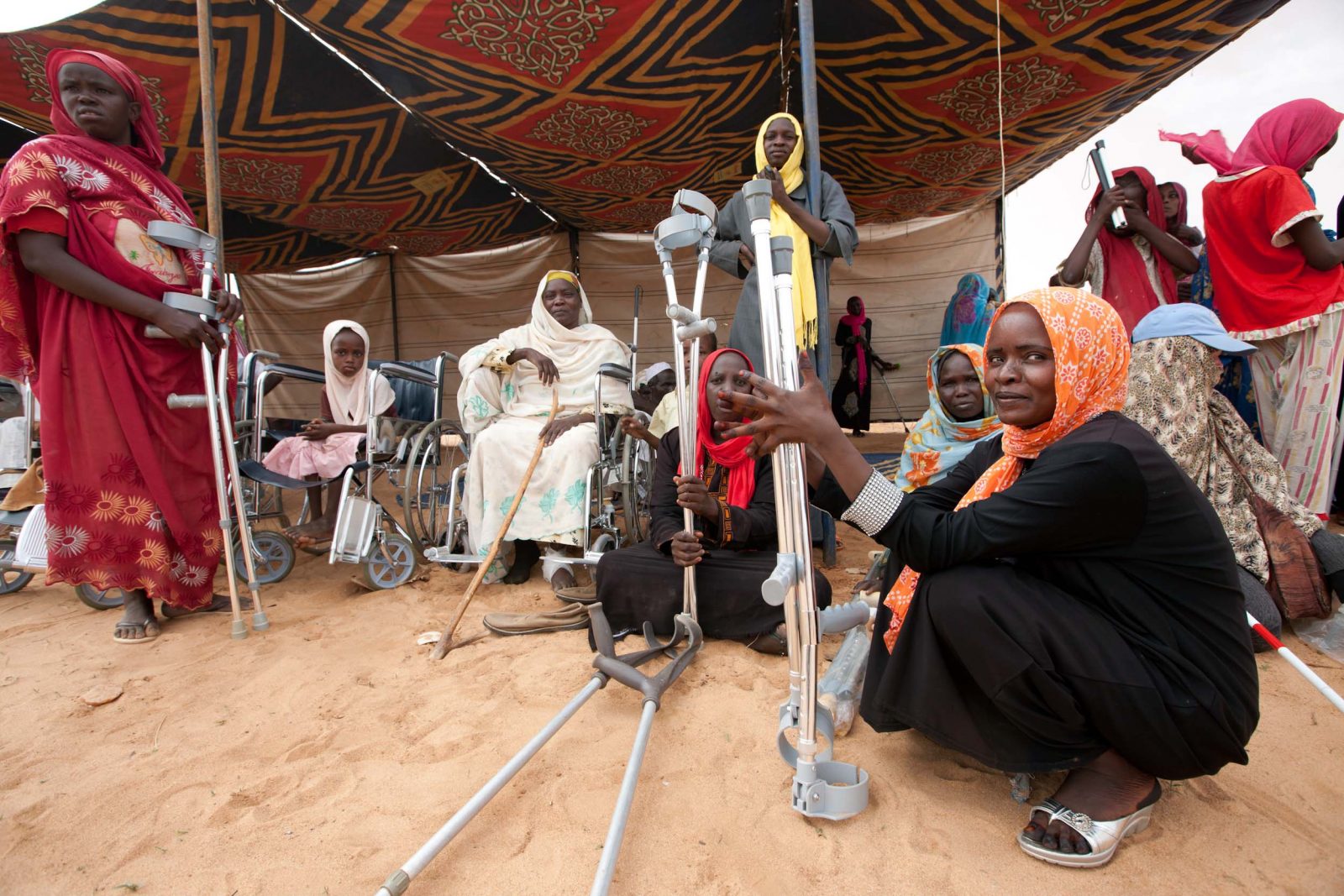The current corona virus pandemic has turned the world upside down along with the lives of entire populations at risk of contracting the highly contagious virus. The transmission methods of the virus do not discriminate based on a person’s economic status, race, gender, origin, location, religious or sexual orientation. Vulnerable groups like people with disabilities are no exception to the various social, medical and economic fallouts from the threat of contagion from COVID-19.
People with disabilities, in general, are considered a marginalized group in all societies because of their need for specialized care and access to even the most basic essential services. The range of their needs can vary tremendously based on the type and extent of their individual disability. Many persons with disabilities must rely on special services such as access to facilities (wheelchairs); transportation means (buses), vision impairment signs (brail), specialized healthcare facilities, regular medical treatments etc. for their daily survival. These special needs do not disappear because of a pandemic. On the contrary, their needs may become amplified during strenuous times since obtaining the necessary care and services may become ever more challenging or even impossible depending on where the person lives.
The special needs of people with disabilities may become amplified during the COVID-19 pandemic since obtaining the necessary care and services may become ever more challenging or even impossible.
Tweet
As an airborne virus, restrictions on human interactions have become mandatory in certain countries with imposed social distancing requirements. Many public services have become highly limited, if not completely halted; leaving persons with disabilities abandoned in terms of getting access to essential healthcare and social services. For example, a person who needs to have regular blood tests or psychological evaluations and treatments may not have access to specialized care because the medical facility serving them may be closed, or the public transportation services the individual usually relies on may no longer be available to get them to their appointments. Without the support of public services that many people with disabilities rely on, some disabled may be left neglected by their governments as budget priorities may shift to the needs of the majority of the population rather than the needs of the minority groups.
In addition, many people with disabilities often already suffer from social isolation. The panic and measures surrounding the preventative measures of COVID-19 can increase that sense of isolation. Certain countries may already look upon people with disabilities as outcasts or undesirable members of their society and may not consider their lack of access to government aid such as donations or emergencies services for their basic needs like food and supplies provided to the general population. The disabled persons without government assistance may be relying on family, community members or specialized organizations to assist them in time of crisis, but even these sources may be restricted or closed due the pandemic.
The economic fallout of the COVID-19 may also impact the employment and economic opportunities of many persons with disabilities. If living in a country that is not equipped to provide supplemental unemployment insurances to cover basic needs for medical care, housing and food, many people with disabilities will be highly affected and at risk of homelessness or premature death if they have no alternative forms of support. Also, those receiving help from informal sources like family members, which are often the case in developing nations, may also suffer as family resources become scarce and additional income may not be available to support relatives with special needs.
More incidents of domestic abuse have been reported in many countries as families are confined in the restricted quarters of their own homes. The increase in domestic violence also may impact people with disabilities. The main victims are reported to be vulnerable groups such as women and children. People with disabilities are among the list of vulnerable groups that could see an increase in abuse or neglect by caregivers or family members that are under additional stress as they suddenly become primary care givers due to the pandemic.
Living in a developing nation can make matters even worse as general healthcare services are already inadequate. People with disabilities who do receive certain resources will definitely suffer as their care will be considered less crucial or essential compared to that of the general population. As funding for non-profits and specialized programs affected by new economic hardships and layoffs, many programs for the disabled may be the first to be cut. For example, as the head of a non-profit which supports people with albinism in Mali, the main dermatology center in which our patients receive care is temporarily not accepting patients. Therefore, crucial skin cancer screenings and treatments are terminated indefinitely leaving our members with no other alternative care and at risk of dying from preexisting conditions.
In conclusion, having a disability does not increase, by itself, a person’s chances of contracting COVID-19. Pandemic related restrictions on services that people with disabilities rely on can be contributing factors in increasing their risks of contracting the virus or succumbing to other illnesses based on the lack of access to healthcare and programs for their pre-existing conditions. The closure of specialized facilities, medical centers, transportation or additional specialized services by civil society organizations or governments can increase their exposure to the virus. Many vulnerable citizens may become susceptible to developing other life threatening conditions such as hunger, homelessness, medical neglect, abuse and isolation. All governments need to take into account the needs of their vulnerable citizens with disabilities during this pandemic and make emergency resources and funds available to care for them in compliance the basic human rights guaranteed to all their other citizens.
Coumba Makalou is the head of the Salif Keita Global Foundation for people with albinism. She is also a consultant to various organizations of creating awareness campaigns and events for humanitarian causes.

